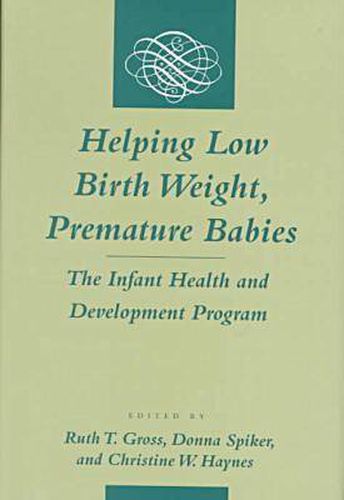Readings Newsletter
Become a Readings Member to make your shopping experience even easier.
Sign in or sign up for free!
You’re not far away from qualifying for FREE standard shipping within Australia
You’ve qualified for FREE standard shipping within Australia
The cart is loading…






Each year in the United States, 250,000 infants are born too soon, weighing too little. For these low birth weight, premature infants, the future is uncertain, since they are at risk for a variety of serious medical and developmental problems including behavioral and learning disorders that may have damaging effects for the rest of their lives. The extent to which a comprehensive early intervention program could improve or prevent these adverse outcomes was examined in the Infant Health and Development Program, a randomized controlled trial involving almost 1,000 infants in eight cities in the United States. This book describes in detail the program, its research methodology, the progress of the program, and the results of the clinical trial. The program was administered by an interdisciplinary team composed of physicians, biostatisticians, child development specialists, and researchers from several disciplines. It was instituted upon the discharge of the infants from the neonatal nursery and was maintained for three years. One-third of the infants were randomly assigned to an intervention group, the remainder to a follow-up group. Infants in both groups received pediatric care and community referral services, but only those in the intervention group participated in a program that included extensive home visits, attendance at a child development center, and group meetings for parents.
$9.00 standard shipping within Australia
FREE standard shipping within Australia for orders over $100.00
Express & International shipping calculated at checkout
Each year in the United States, 250,000 infants are born too soon, weighing too little. For these low birth weight, premature infants, the future is uncertain, since they are at risk for a variety of serious medical and developmental problems including behavioral and learning disorders that may have damaging effects for the rest of their lives. The extent to which a comprehensive early intervention program could improve or prevent these adverse outcomes was examined in the Infant Health and Development Program, a randomized controlled trial involving almost 1,000 infants in eight cities in the United States. This book describes in detail the program, its research methodology, the progress of the program, and the results of the clinical trial. The program was administered by an interdisciplinary team composed of physicians, biostatisticians, child development specialists, and researchers from several disciplines. It was instituted upon the discharge of the infants from the neonatal nursery and was maintained for three years. One-third of the infants were randomly assigned to an intervention group, the remainder to a follow-up group. Infants in both groups received pediatric care and community referral services, but only those in the intervention group participated in a program that included extensive home visits, attendance at a child development center, and group meetings for parents.